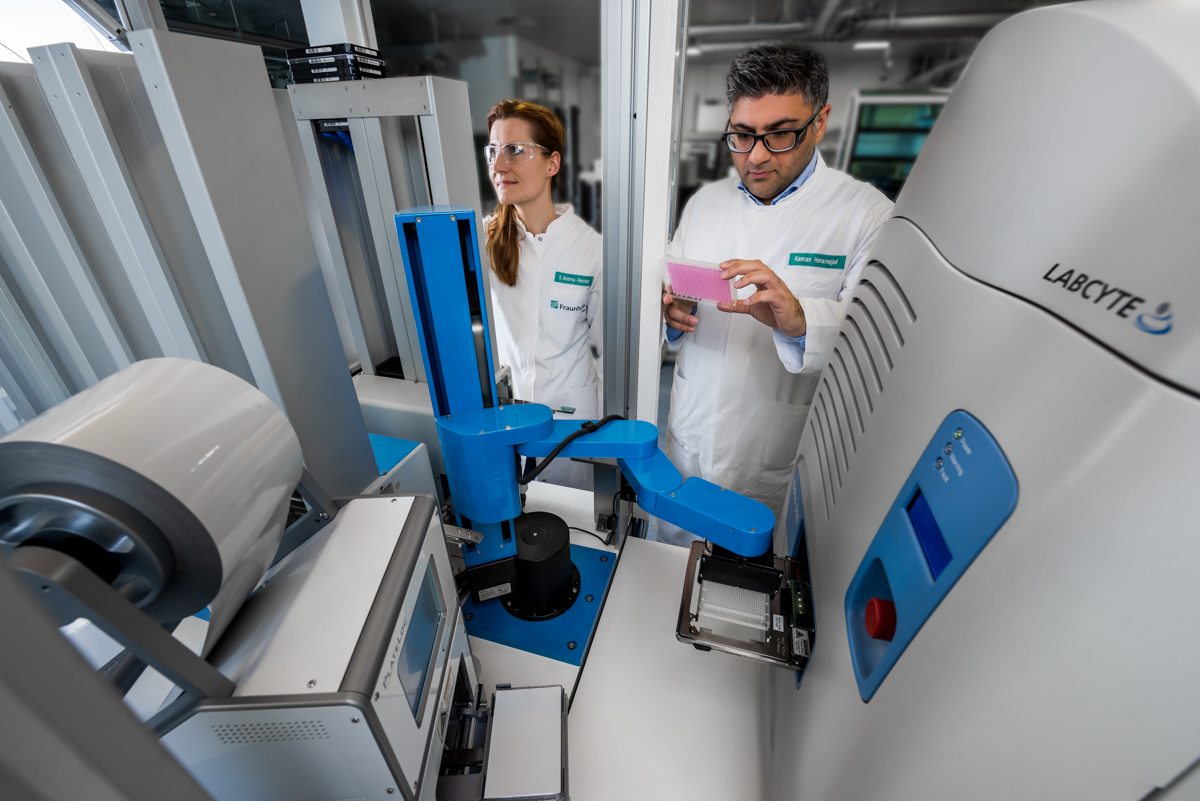From research models to patients
The SFB/TRR 305 will be focusing on these specific questions of the complex metastatic cascade, with the goal to pave the way for the development of a new generation of metastasis-preventive therapies. The research program is subdivided into two areas built upon each other and reflecting the main objectives. Research area A "Cancer cell adaptation to selection forces" is focused on cell-specific properties that are functionally related to metastasis formation. Research area B "Immune- and niche-dependent conditions of metastatic colonization investigates the interactions of cancer cells with their microenvironment during colony formation. It also includes a technology development project to study complex cellular interactions using novel in-vitro assays.
The scientists will use completely new approaches: The findings from the individual projects, some of which will be derived from models, will be tested directly on patient samples and could serve as basis for the development of diagnostic tests and new therapeutic concepts. For this purpose, cancer patients at the university hospitals of Regensburg and Erlangen will be asked for their consent to donate tissue samples for use in metastasis research. In the project that has been designed for a period of twelve years, patients with and without disease progression will be asked repeatedly, from the initial diagnosis throughout the entire course of the disease, to provide samples that can then be used to investigate the spread to different organs, the response to therapies, the development of resistance to therapies, or the status of immune control.
Using Fraunhofer know-how to rapidly translate research results into clinical applications
The Collaborative Research Center will comprise 18 subprojects and 3 central projects. A total of 37 researchers will be involved, working not only at the universities of Regensburg and Erlangen-Nuremberg, but also at Fraunhofer. This alliance enables a rapid translation of research results from bench to bedside. As Europe's leading organization for applied research, the Fraunhofer-Gesellschaft has many years of experience in rapidly putting medical innovations to practical use.
The Fraunhofer-Gesellschaft is contributing two projects to the SFB/TRR 305. In the project "High-throughput screening assays and readouts for targeting metastatic progression", Dr. Kamran Honarnejad of Fraunhofer ITEM in Regensburg, Prof. Joachim Wegener of Fraunhofer EMFT in Regensburg, and Dr. Philip Gribbon of Fraunhofer IME in Hamburg will be collaborating to develop novel models and analysis technologies for high-throughput drug screenings. Signaling pathways and potential therapeutic targets that have been identified as important in the other subprojects will be studied in detail, aiming to discover possible ways to interfere with relevant signaling pathways by using state-of-the-art high-throughput screening infrastructures and comprehensive substance libraries. In addition, reductionistic metastatic niches will be generated and the efficacy of drugs depending on the niche will be investigated. The collaboration of Fraunhofer researchers with complementary expertise within a subproject is intended to enable innovative solutions.
The second Fraunhofer subproject "Novel patient-specific immune-competent preclinical in-vitro models to study early metastasis" also brings together three Fraunhofer subproject leaders: Prof. Armin Braun of Fraunhofer ITEM in Hannover, Dr. Christian Werno of Fraunhofer ITEM in Regensburg, and Dr. Frank Sonntag of Fraunhofer IWS in Dresden. They will develop complex cell models that are particularly well suited to study the influence of the immune system on metastatic colony formation and to discover and test new immunotherapeutics. The scientists will also make use of their colleagues' know-how in high-throughput analysis technologies to this end.
 Fraunhofer Institute for Toxicology and Experimental Medicine
Fraunhofer Institute for Toxicology and Experimental Medicine